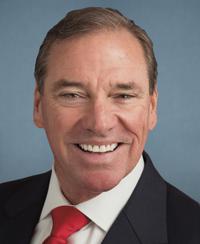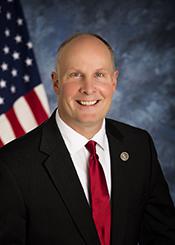0
0
0
Ending China’s Unfair Advantage Act of 2025
3/29/2025, 6:38 AM
Summary of Bill HR 2115
Bill 119 hr 2115 aims to stop the funding for two international agreements, the Montreal Protocol on Substances that Deplete the Ozone Layer and the United Nations Framework Convention on Climate Change, until China is no longer classified as a developing country. The bill argues that China, as one of the world's largest economies and greenhouse gas emitters, should no longer receive the benefits and exemptions given to developing countries under these agreements.
The Montreal Protocol, established in 1987, aims to phase out the use of substances that deplete the ozone layer, such as chlorofluorocarbons (CFCs). The United Nations Framework Convention on Climate Change, established in 1992, sets out a framework for international cooperation to combat climate change.
The bill's supporters argue that China's status as a developing country gives it an unfair advantage in these agreements, allowing it to continue using ozone-depleting substances and emitting high levels of greenhouse gases. They believe that China should be held to the same standards as other developed countries in terms of environmental protection. Critics of the bill argue that cutting off funding for these agreements could hinder global efforts to protect the ozone layer and combat climate change. They also point out that China still faces significant challenges in terms of poverty and development, despite its economic growth. Overall, Bill 119 hr 2115 raises important questions about the classification of countries in international agreements and the responsibilities of major economies like China in addressing environmental issues. It will be interesting to see how this bill progresses through Congress and what impact it may have on global environmental efforts.
The Montreal Protocol, established in 1987, aims to phase out the use of substances that deplete the ozone layer, such as chlorofluorocarbons (CFCs). The United Nations Framework Convention on Climate Change, established in 1992, sets out a framework for international cooperation to combat climate change.
The bill's supporters argue that China's status as a developing country gives it an unfair advantage in these agreements, allowing it to continue using ozone-depleting substances and emitting high levels of greenhouse gases. They believe that China should be held to the same standards as other developed countries in terms of environmental protection. Critics of the bill argue that cutting off funding for these agreements could hinder global efforts to protect the ozone layer and combat climate change. They also point out that China still faces significant challenges in terms of poverty and development, despite its economic growth. Overall, Bill 119 hr 2115 raises important questions about the classification of countries in international agreements and the responsibilities of major economies like China in addressing environmental issues. It will be interesting to see how this bill progresses through Congress and what impact it may have on global environmental efforts.
Read the Full Bill
Current Status of Bill HR 2115
Bill HR 2115 is currently in the status of Bill Introduced since March 14, 2025. Bill HR 2115 was introduced during Congress 119 and was introduced to the House on March 14, 2025. Bill HR 2115's most recent activity was Referred to the Committee on Foreign Affairs, and in addition to the Committee on Energy and Commerce, for a period to be subsequently determined by the Speaker, in each case for consideration of such provisions as fall within the jurisdiction of the committee concerned. as of March 14, 2025
Bipartisan Support of Bill HR 2115
Total Number of Sponsors
2Democrat Sponsors
0Republican Sponsors
2Unaffiliated Sponsors
0Total Number of Cosponsors
2Democrat Cosponsors
0Republican Cosponsors
2Unaffiliated Cosponsors
0Policy Area and Potential Impact of Bill HR 2115
Primary Policy Focus
Alternate Title(s) of Bill HR 2115
To prohibit funding for the Montreal Protocol on Substances that Deplete the Ozone Layer and the United Nations Framework Convention on Climate Change until China is no longer defined as a developing country.
To prohibit funding for the Montreal Protocol on Substances that Deplete the Ozone Layer and the United Nations Framework Convention on Climate Change until China is no longer defined as a developing country.
Comments
Sponsors and Cosponsors of HR 2115
Latest Bills
ESTUARIES Act
Bill HR 3962December 13, 2025
Federal Maritime Commission Reauthorization Act of 2025
Bill HR 4183December 13, 2025
National Defense Authorization Act for Fiscal Year 2026
Bill S 1071December 13, 2025
Enduring Justice for Victims of Trafficking Act
Bill S 2584December 13, 2025
Technical Corrections to the Northwestern New Mexico Rural Water Projects Act, Taos Pueblo Indian Water Rights Settlement Act, and Aamodt Litigation Settlement Act
Bill S 640December 13, 2025
Incentivizing New Ventures and Economic Strength Through Capital Formation Act of 2025
Bill HR 3383December 13, 2025
BOWOW Act of 2025
Bill HR 4638December 13, 2025
Northern Mariana Islands Small Business Access Act
Bill HR 3496December 13, 2025
Wildfire Risk Evaluation Act
Bill HR 3924December 13, 2025
Energy Choice Act
Bill HR 3699December 13, 2025


